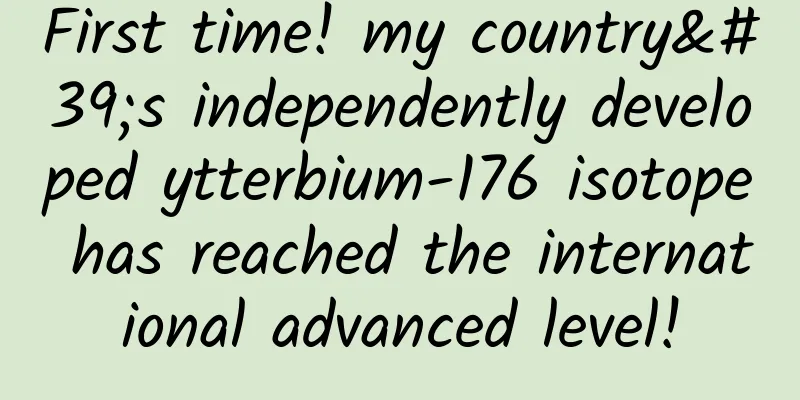Are all viruses harmful? Research finds that they can help build intestinal immunity

|
An imbalance in fecal virome has been reported in patients with ulcerative colitis (UC), Crohn's disease (CD), and other types of inflammatory bowel disease (IBD). However, it is unclear whether fluctuations in viral populations have a mechanistic role in these diseases. Kate L. Jeffrey, PhD, a scientist in the Massachusetts General Hospital Center for Inflammatory Bowel Disease Research, Fatemeh Adiliaghdam, PhD, a researcher in Dr. Jeffrey's laboratory, and colleagues provide the first important evidence that a healthy gut viral population can help build gut immunity in humans -- in stark contrast to the belief that all viruses are bad. Equally exciting, the viromes from IBD patients triggered inflammation both in the lab and in mice. The team discusses the implications of these findings for virus-based treatments for IBD in the journal Science Immunology. (Source: Pixabay) Since the virus requires host cells to replicate, the researchers chose to study colon tissue. They isolated the virus from healthy volunteers and resected tissue samples from patients with UC or CD and delivered it to human macrophages or intestinal epithelial cells. In both types of experiments, viruses from the healthy gut suppressed the classical antiviral response and promoted an anti-inflammatory response. In contrast, viruses from the inflamed UC or CD gut strongly promoted the inflammatory state. Similar results were observed when the researchers isolated viruses from ileostomy fluid of IBD patients. Viruses significantly elevated in IBD colonic tissue include caudovirales bacteriophages and enterovirus B, particularly echovirus serotypes. Fecal virome analysis misses eukaryotic enteroviruses as potential pathogenic agents in IBD. To confirm the in vitro findings, the researchers reduced the gut virome of mice and introduced normal, UC-associated, or CD-associated human colon tissue viromes. Mice treated with the normal virome were protected from intestinal inflammation, whereas the IBD virome triggered inflammation and intestinal damage. Similarly, in a mouse model of ulcerative colitis, transplantation of healthy human gut viral populations protected against inflammation and damage, whereas viral populations from IBD patients exacerbated tissue damage. Recognition of viral communities by the host immune system is essential for their ability to confer immunity or contribute to disease. Therefore, the gut virome has autonomous immunomodulatory potential, similar to the microbiome. Harnessing the gut's viral population is a potential approach to suppress inflammation in IBD. The MGH team plans to explore two strategies: targeted elimination of pathogenic viruses (such as with vaccines or antiviral drugs) and transplantation of viral populations isolated from healthy individuals, specifically from colon tissue. The authors speculate that viruses may already play a role in successful fecal transplants to treat infections such as Clostridium difficile. Fluctuations in the virome have also been reported in colorectal cancer, type 1 diabetes, nonalcoholic fatty liver disease, HIV infection, and other diseases, so therapeutic modulation of the virome may have broad implications. Original link: |
<<: You may not know that there was also glass in ancient China.
>>: What is sleep paralysis? Is it really caused by ghosts?
Recommend
Template for planning fission activities!
1. #Split the wheel lottery game and get a gift b...
A guide to Xiaohongshu advertising strategies!
Strictly speaking, although Xiaohongshu is very p...
The only survivor of Jixi sour soup poisoning has passed away. How long can sour soup be preserved?
The "sour soup" poisoning incident that...
What is the most effective way to attract new customers?
Background knowledge: CAC = cost to acquire a sin...
What is the situation with mobile phone production capacity?
Looking at all the so-called domestic products in ...
How many of the ten typical marine ecosystems do you know?
Students who have been paying attention to us sho...
Now that Japan’s “National EV Alliance” has been formed, can Chinese car companies use fewer tricks between them?
If you want to know what best reflects the confid...
How to operate short videos? How to make short videos for self-media?
Short videos are becoming more and more popular. ...
iPhone 6S A9 processor details revealed! Apple is going crazy
There are currently two unsolved mysteries about ...
Super Fan Pass is online, how to use it? This guide may be the most complete!
On August 23, all Fans Channels were switched to ...
"91 Ten Articles" - A daily must-read briefing for the new energy vehicle industry (210225)
1. Hyundai will recall 82,000 electric vehicles w...
Creative material style for high-conversion information flow advertising on Toutiao!
Before talking about what are good creative mater...
SNE Research: CATL's installed capacity of power batteries will be 339.3GWh in 2024, ranking first in the world
According to recent news, South Korean battery an...
Who will get a share of the 100 billion yuan terminal subsidies in 2016?
Source: NetEase Technology Original title: "...
Dingxiang Doctor Competitive Product Analysis Report
The Internet can “+” everything, and medical reso...









